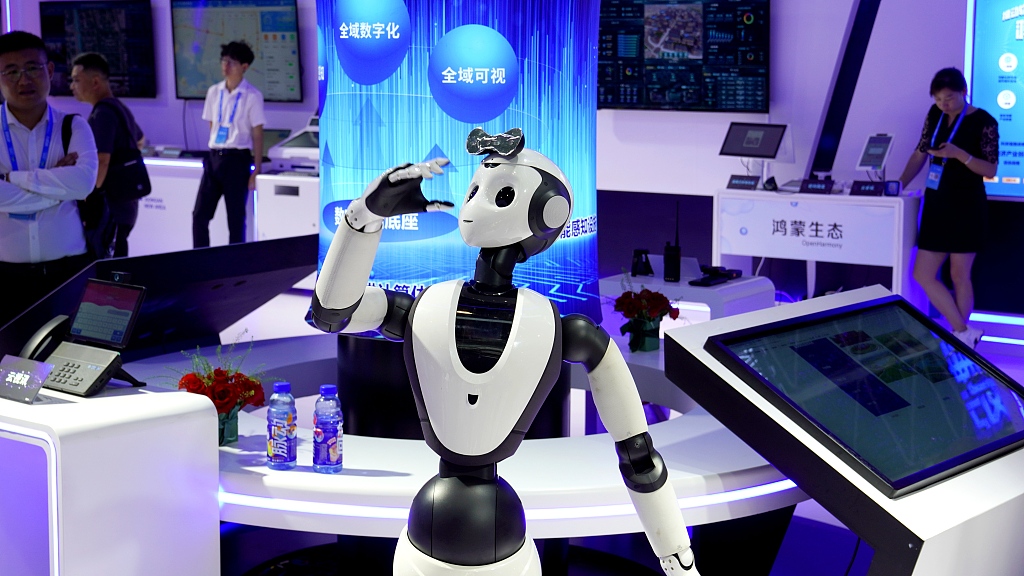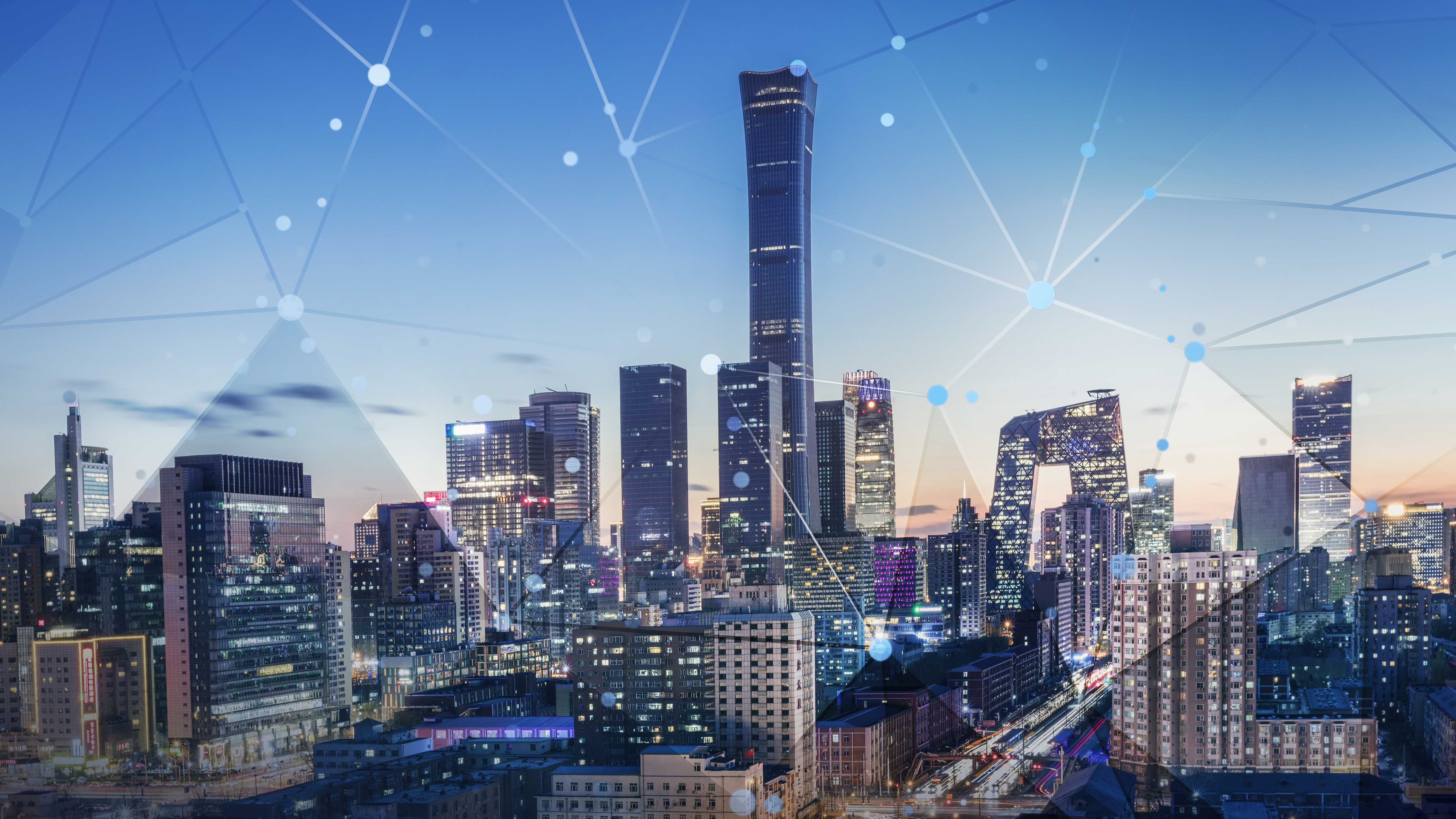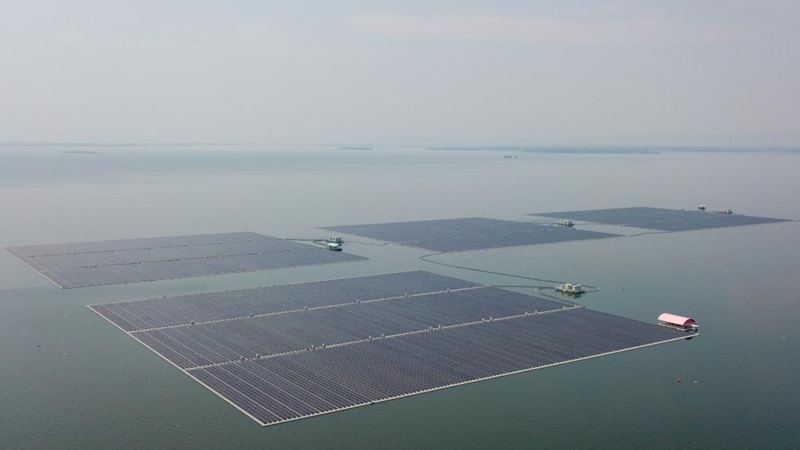China has issued guidelines for the development of humanoid robots with strategic plans set for 2025 and 2027.
The guidance, issued by the country’s Ministry of Industry and Information Technology (MIIT), aims to establish a preliminary innovation system for humanoid robots by 2025, and achieve breakthroughs in key technologies like the “brain, cerebellum and limbs” of robots.
The goal is to ensure the safe and effective supply of core components, with the robots reaching international advanced levels and being used in scenarios such as special operations, manufacturing and livelihood services.
It also plans to cultivate two to three ecological enterprises with global influence, a group of specialized small- and medium-sized enterprises, and two to three industrial clusters, breeding and developing new business models and forms.
By 2027, China aims to significantly improve the technological innovation capability of humanoid robots, establish a safe and reliable industrial supply chain, and build an internationally competitive industrial ecology.
The industry will also accelerate its large-scale development with more diverse application scenarios, and relevant products are expected to deeply integrate into the real economy, becoming an important new engine of economic growth.
Humanoid robot, which integrates advanced technologies such as artificial intelligence (AI), high-end manufacturing and new materials, is expected to become the next disruptive product after computer, smartphone, and new energy vehicle. With great development potential and wide application prospects, it is seen as another new track of future industries, according to the MIIT.
Although China has certain foundation for the development of the sector, the country’s humanoid robot industry lags behind in areas like key basic components, operating systems and industrial ecology. The guidance aims to strengthen policy guidance, pool resources, promote innovation in key technologies and foster new productivity, according to the MIIT.
‘A crucial step’
Wang Peng, an associate research fellow at Beijing Academy of Social Sciences, told Global Times that the issuance of this guidance will aid relevant parties in better integrating research and development resources with a market-based approach, hailing it a “crucial step in the right direction.”
Prior to the guidance, local governments have also released action plans to foster the development of the robotics industry, including humanoid robots.
China’s capital city Beijing has issued a 2023-2025 action plan for the innovation and development of the industry, which will set up a fund of 10 billion yuan (roughly $1.4 billion), in addition to the construction of a humanoid robot industry innovation center.
Shenzhen in south China’s Guangdong Province has proposed to carry out the development and application of universal embodied intelligent robots, and will accelerate the establishment of a humanoid robot manufacturing innovation center.
East China’s Shanghai Municipality has planned to build an international algorithm innovation base to bolster the development of humanoid robots.
Humanoid robots are considered a significant measure of scientific and technological innovation and high-end manufacturing, Zhu Qiuguo, an associate professor of the College of Control Science and Engineering at Zhejiang University, told Xinhua.
With the continuous breakthroughs in basic core technologies, humanoid robots, such as production line robots, service robots and even household companion robots, will have broad prospects for application in the future, Zhu added.
The scale of the global humanoid robot market will reach 1.9 trillion yuan (about $263.9 billion) by 2030, with China’s market scale accounting for 376.2 billion yuan (about $51.4 billion) of that figure, according to Xinhua.
Source(s): CGTN

 News7 days ago
News7 days ago
 Sports5 days ago
Sports5 days ago
 World6 days ago
World6 days ago
 News4 days ago
News4 days ago
 World7 days ago
World7 days ago
 World5 days ago
World5 days ago
 Travel & Culture6 days ago
Travel & Culture6 days ago
 News6 days ago
News6 days ago


















